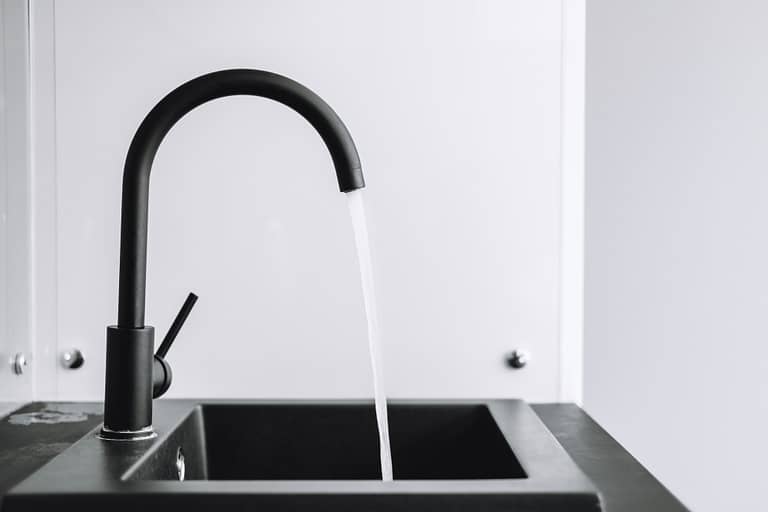Dallas Water Conservation Ordinances: What Homeowners Need to Know
Howdy, Dallas homeowners!
Interested in learning about the water conservation rules in the city? Want to understand how they affect you?
These ordinances aim to help you save water and money while safeguarding the environment. By following these simple guidelines, you can significantly reduce water usage.
Let’s delve into what these ordinances mean for you and your home.
Key Takeaways
If you’re wondering how to care for your lawn and garden with only two days of watering per week because of the Dallas water conservation ordinances, there are ways to create a beautiful landscape while using less water. Making small changes and using water-efficient practices can help preserve our water resources for future generations. For instance, consider installing a drip irrigation system or using drought-resistant plants to reduce water usage and still maintain an attractive outdoor space. These strategies not only benefit your property but also contribute to the broader effort of water conservation in the community.
Understanding Dallas Water Conservation Laws
Understanding the water conservation laws in Dallas is crucial to follow the outdoor watering restrictions and help conserve the city’s water. The Water Conservation Ordinance, No. 28622, provides clear guidelines for outdoor watering schedules, emphasizing the need to reduce water waste and promote responsible usage.
Familiarizing yourself with these laws allows you to play a vital role in conserving water and supporting environmental sustainability. It’s important to understand the designated watering days and the limit of twice per week for outdoor watering to align with the city’s conservation goals.
Staying informed about the details of the ordinance not only helps avoid penalties but also demonstrates your commitment to being a responsible steward of the environment. Embracing these regulations empowers you to contribute to the collective effort to preserve Dallas’ water resources for future generations.
Key Water Usage Restrictions for Dallas Homeowners
Dallas homeowners can water their lawns and landscapes twice a week on specific days according to their address. Adhering to these designated watering days is crucial to save water and support conservation efforts.
It’s important to note that over 50% of total summer water usage is attributed to outdoor water usage. The conservation ordinance aims to encourage responsible water usage, making it essential for environmental sustainability and water savings.
Compliance Requirements for Dallas Residents
Dallas residents must follow specific outdoor watering guidelines to conserve water during the summer months. Watering is limited to twice per week, and it’s crucial to adhere to the designated watering days to avoid penalties for non-compliance.
Staying informed about these regulations and understanding the water usage limitations and schedules is essential to prevent any issues.
Water Usage Limitations
In Dallas, homeowners must limit outdoor watering to twice per week on designated days to follow the Dallas Water Conservation Ordinances. Adhering to these guidelines is vital for conserving water in the area and avoiding fines or penalties for non-compliance. By abiding by these water usage limitations, residents actively contribute to the preservation of water for future generations.
Here’s a breakdown of what you need to know:
- Watering days are assigned based on your address.
- Hand watering with a hose equipped with a positive shut-off nozzle is permitted at any time on any day.
- Newly installed landscapes may qualify for variances.
- Non-residential properties are subject to specific watering restrictions.
Outdoor Watering Schedules
When it’s your scheduled watering day, make sure to follow the specified times to comply with Dallas Water Conservation Ordinances. It’s vital to use your water responsibly while still caring for your outdoor spaces.
Below are the designated watering days and times for Dallas residents:
- Monday: No watering for both residential and non-residential areas.
- Tuesday: 6:00 – 11:00 a.m. and 6:00 – 11:00 p.m. for residential areas, and 12:00 – 2:00 a.m. for non-residential areas.
- Wednesday: No watering for both residential and non-residential areas.
- Thursday: 6:00 – 11:00 a.m. and 6:00 – 11:00 p.m. for residential areas, and 12:00 – 2:00 a.m. for non-residential areas.
- Friday: No watering for residential areas, and 12:00 – 2:00 a.m. for non-residential areas.
- Saturday: 6:00 – 11:00 a.m. and 6:00 – 11:00 p.m. for residential areas, and no watering for non-residential areas.
- Sunday: No watering for residential areas, and 12:00 – 2:00 a.m. for non-residential areas.
Following these schedules not only helps conserve the city’s water supply but also ensures that you’re actively contributing to environmental preservation.
Penalties for Non-Compliance
Non-Compliance Penalties Explained
Residents and businesses in Dallas must follow water conservation ordinances established by the Dallas City Council. Failure to comply with these regulations can result in penalties, such as fines and other enforcement measures. Here’s what you need to know about these penalties:
- Fines for non-compliance can vary from a few hundred to several thousand dollars.
- Repeat offenders may face increasing fines or other legal consequences.
- Enforcement actions may include warnings, citations, or even disconnection of water service.
It’s crucial to adhere to the ordinance to avoid penalties and support sustainable water management.
The Dallas City Council is dedicated to ensuring adherence to water conservation ordinances to safeguard water resources for future generations.
Impact of Water Conservation Regulations on Property Owners
Water conservation ordinances in Dallas require homeowners to follow specific outdoor watering restrictions to reduce water usage.
While these regulations might seem strict at first, they play a vital role in ensuring the sustainable use of water resources.
Adhering to these guidelines not only contributes to overall water conservation efforts in Dallas but also has a positive impact on your property.
Efficient water usage helps extend the life of water supply infrastructure, reducing the need for expensive expansions or repairs.
Furthermore, decreased water waste can result in lower water bills for homeowners.
Embracing these regulations ultimately benefits both the community and individual property owners, promoting a more sustainable and cost-effective approach to water usage.
Effective Strategies for Meeting Dallas Water Conservation Standards
Meeting Dallas water conservation standards requires homeowners to focus on improving outdoor watering practices. To comply with Dallas water conservation ordinances, consider these strategies:
- Upgrade to water-efficient irrigation systems, such as drip irrigation or smart controllers.
- Utilize native and drought-resistant plants in landscaping to reduce the need for excessive watering.
- Implement rainwater harvesting systems to capture and reuse rainwater for outdoor use.
- Regularly inspect and maintain outdoor plumbing and irrigation systems to prevent leaks and water waste.
- Educate yourself and your family on water-saving practices, such as adjusting sprinklers to avoid watering sidewalks and driveways.
Financial Penalties for Violating Dallas Water Conservation Ordinances
Violating the Dallas Water Conservation Ordinance can lead to financial penalties. The ordinance aims to reduce water waste and promote responsible water management. As a homeowner, it’s important to follow the regulations to avoid fines for irresponsible water usage. Here’s a breakdown of the potential financial penalties for violating the Dallas water conservation ordinances:
| Violation | Penalty | Consequences |
|---|---|---|
| Non-compliant watering | Up to $2,000 for residential properties and $4,000 for commercial properties per violation | Increased water bills, legal action, and public notice |
| Excessive water usage | Tiered pricing structure may lead to higher water bills | Increased financial burden and public notice |
| Ignoring restrictions | Up to $500 for residential properties and $2,000 for commercial properties per violation | Fines and public notice |
Understanding the potential financial implications of non-compliance is essential for responsible water management. Moving forward, let’s explore resources for Dallas homeowners to support water conservation.
Resources for Dallas Homeowners to Support Water Conservation
As a homeowner in Dallas, you have access to various resources that can help you conserve water. These resources include rebates for water-efficient appliances and incentives for native plant landscaping.
By using these resources, you can contribute to water conservation and potentially save on costs. For example, you can receive rebates for installing water-efficient appliances and get incentives for planting native drought-resistant plants.
These actions not only benefit the environment but also your wallet.
Rebates for Water-Efficient Appliances
Dallas homeowners can access rebates for water-efficient appliances to support water conservation efforts. These resources, provided by Water Utilities, aim to make homes more sustainable and environmentally friendly. Available rebates include savings on water-efficient toilets and washing machines, incentives for installing water-efficient irrigation systems, financial support for purchasing and installing water-saving technologies, and accessible information on available rebates and application procedures on the Save Dallas Water website.
By utilizing these rebates, homeowners not only contribute to water conservation but also save on the costs of purchasing and installing water-efficient appliances.
Transitioning into the subsequent section, let’s explore the incentives for native plant landscaping.
Native Plant Landscaping Incentives
Dallas offers incentives for homeowners to support water conservation efforts through native plant landscaping. Dallas Water Utilities, Green Dallas, and Dallas City Hall provide these incentives to reduce outdoor water usage and promote responsible water practices.
By incorporating native plants into your landscaping, you can conserve water and create a sustainable outdoor space. Here’s a summary of available incentives:
- Dallas Water Utilities offers rebates for native plant purchases. Visit their website for details.
- Green Dallas conducts workshops on native plant landscaping. Check their website for upcoming events.
- Dallas City Hall provides permit fee waivers for native plant landscaping projects. Contact them for more information.
Frequently Asked Questions
What Are the Watering Rules in Dallas?
In Dallas, you must adhere to a watering schedule. This means you can only water your lawn twice a week on specific days. These measures are in place to minimize water wastage and encourage responsible water usage as part of broader water conservation efforts.
What Are the Water Restrictions in Texas?
In Texas, there are specific rules about using water to help save it. These rules say you can only water your lawn or garden two times each week. The goal is to stop water from being wasted and to encourage careful water use.
How Do I Set up Water in Dallas?
To set up water service in Dallas, simply visit the Dallas Water Utilities website to begin the process. They will walk you through the steps and provide all the information you need to start your water service.
How Long to Set Sprinkler Zones in Texas?
In Texas, it’s best to set your sprinkler zones to run for 30 minutes, twice a week. Doing this helps you save water, keeps your lawn healthy, and ensures you comply with local water conservation rules. This watering schedule strikes a balance between water conservation and lawn maintenance.
Conclusion
If you’re wondering how to maintain your lawn and garden with only two days of watering per week due to the Dallas water conservation ordinances, there are ways to achieve a beautiful landscape while conserving water.
By implementing small changes and using water-efficient practices, you can actively contribute to the preservation of our water resources for future generations.







